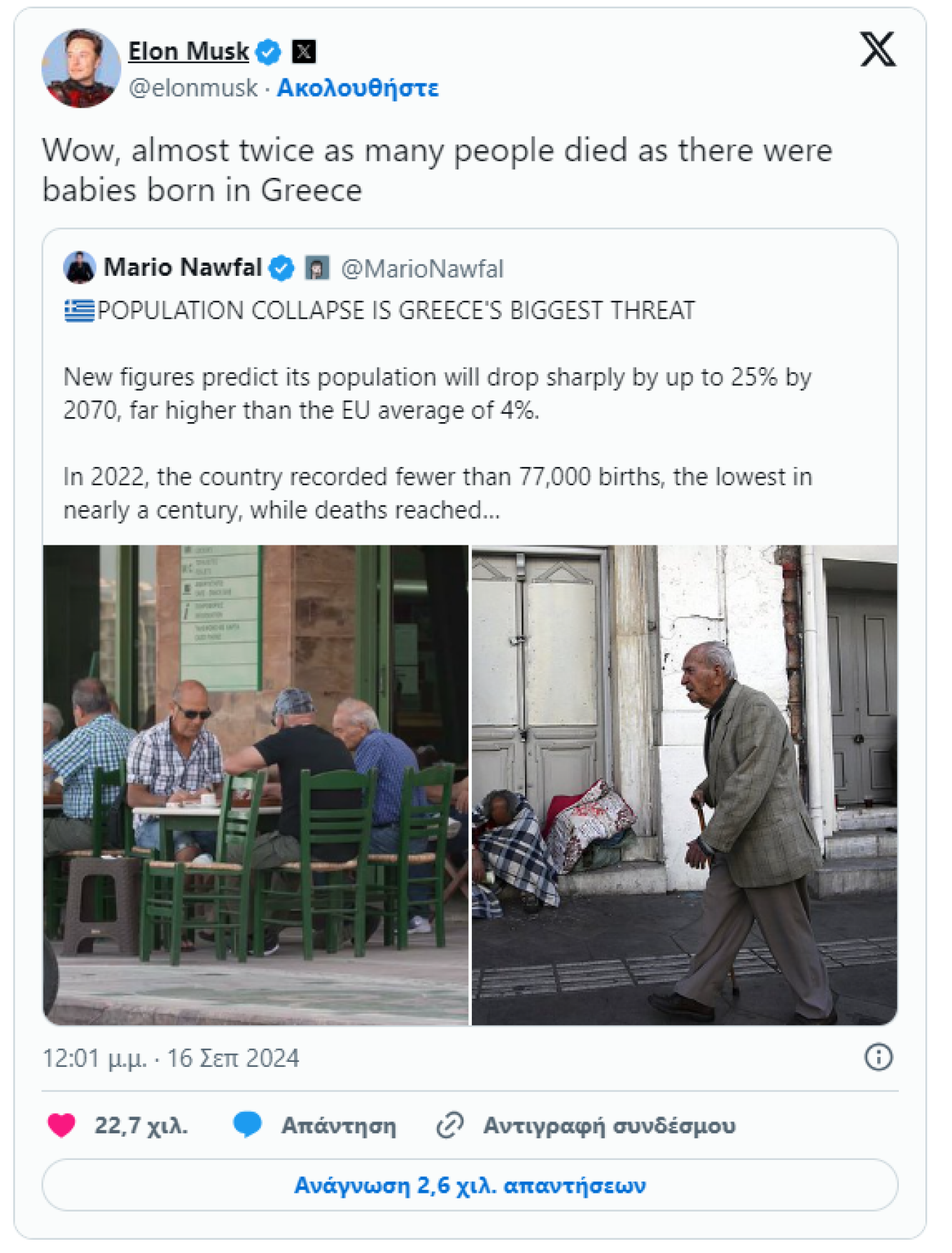In a new post on X (formerly Twitter), tech magnate Elon Musk addressed another X user who cited an article stating that Greece’s population “will decline sharply by up to 25% by 2070, much more than the EU average of 4%. In 2022, Greece recorded fewer than 77,000 births, the lowest in almost a century, while deaths reached 140,000. Economic challenges, low wages, and high unemployment have led many young Greeks abroad, exacerbating the crisis.”

“The fertility rate in Greece is now just 1.32 births per woman, leading to an aging population. The government has introduced tax incentives and family support measures to combat this trend, with officials calling it the ‘greatest threat’ to the country,” the user’s post, which Musk shared, continues.
It is worth noting that Elon Musk made a similar post last April, though he shared an article from a site frequently criticized for fake news and conspiracy theories.
One Birth for Every Two Deaths
The issue of low birth rates is more than apparent. According to the latest data from ELSTAT for 2023, there were 73,000 births, marking the lowest level in the last 91 years, while deaths reached 127,581. This significant gap between births and deaths highlights the ongoing problem of low birth rates in the country.
In 2022, births in Greece totaled 76,541, while deaths amounted to 140,801. The data indicate that for every two people who die, one is born, a situation that will lead to drastic economic and social changes in Greek society within a few years. However, the low number of births is not due to women having fewer children but rather to a decrease in the population of reproductive age, as life expectancy increases.
Another significant factor is that in 1982, most births were from women aged 20-34, whereas in 2022, most births were from women aged 25-39. Notably, in 1982, 1,707 babies (out of a total of 137,275 births) were born to women aged 40-44, while in 2022, 6,303 babies (out of 76,514 births) were born to women in this age group.
Ask me anything
Explore related questions





